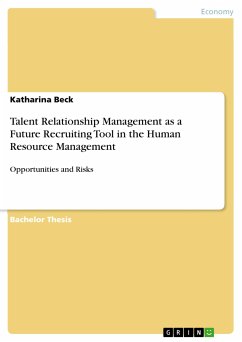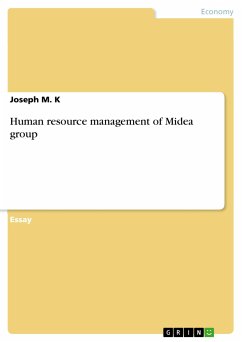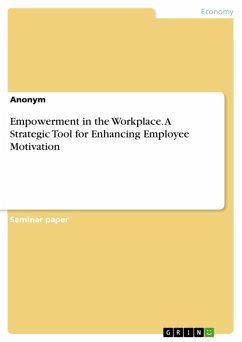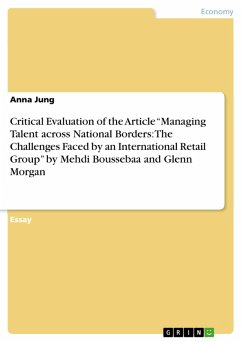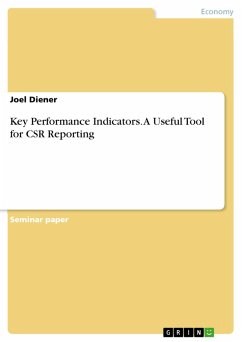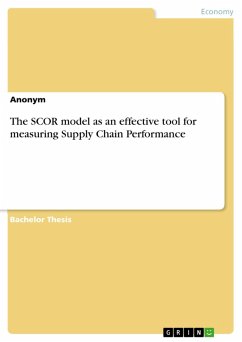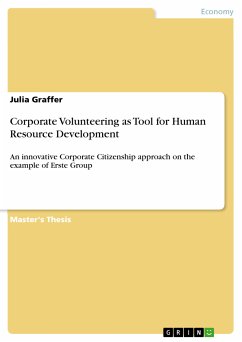
Corporate Volunteering as Tool for Human Resource Development (eBook, PDF)
An innovative Corporate Citizenship approach on the example of Erste Group
Versandkostenfrei!
Sofort per Download lieferbar
Statt: 47,95 €**
36,99 €
inkl. MwSt. und vom Verlag festgesetzt.
**Preis der gedruckten Ausgabe (Broschiertes Buch)
Alle Infos zum eBook verschenkenWeitere Ausgaben:

PAYBACK Punkte
0 °P sammeln!
Master's Thesis from the year 2011 in the subject Business economics - Business Management, Corporate Governance, grade: 1,0, University of Innsbruck (Fakultät für Betriebswirtschaft), language: English, abstract: Corporate Social Responsibility (CSR) related topics are perceptibly on the rise - in the media1, in advertisements, in academic education and research as well as in political discourse. Reasons for this trend are globalization with the associated increased power of corporations as well as the current financial crisis - i.a. caused by unethical corporate behavior - which led to a c...
Master's Thesis from the year 2011 in the subject Business economics - Business Management, Corporate Governance, grade: 1,0, University of Innsbruck (Fakultät für Betriebswirtschaft), language: English, abstract: Corporate Social Responsibility (CSR) related topics are perceptibly on the rise - in the media1, in advertisements, in academic education and research as well as in political discourse. Reasons for this trend are globalization with the associated increased power of corporations as well as the current financial crisis - i.a. caused by unethical corporate behavior - which led to a changing consumer attitude and a modified public opinion regarding corporate responsibilities. All of this forces companies to act more sustainably and responsibly in order not to lose their 'license to operate'. The ways in which companies can perform CSR are manifold. One opportunity is to implement Corporate Volunteering (CV): Originating in the United States in the late 1970s it has also become an issue of increasing importance in Europe - particularly since the European Commission designated 2011 as the 'European year of volunteering'. The skill development which volunteering entails is one reason why more and more companies these days conduct CV programs. The qualities in question, which are honed through CV are manifold - depending on the type of service. In this regard, Corporate Volunteering apparently has the potential of creating not only a winwin but a triple win situation since, apart from the company and the social institution, the employees are also supposed to benefit. What academic research particularly has not focused on so far is the often mentioned but - in most cases - not discussed advantage for Human Resource Development (HRD), which is a quite obvious one in my opinion: Since the improvement and acquirement of knowledge and skills as well as - broadly speaking - the employees' attitude towards their work and employer are central points in a company's Human Resource Development activities, my thesis will concentrate on the implications of Corporate Volunteer programs concerning the development of new skills and attitudes. This will be illustrated by an extensive literature review as well as a concrete, practical example, namely Erste Group in Austria.
Dieser Download kann aus rechtlichen Gründen nur mit Rechnungsadresse in A, B, BG, CY, CZ, D, DK, EW, E, FIN, F, GR, HR, H, IRL, I, LT, L, LR, M, NL, PL, P, R, S, SLO, SK ausgeliefert werden.




